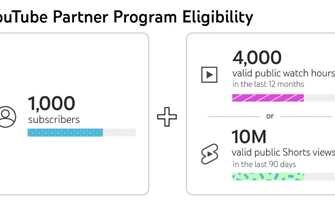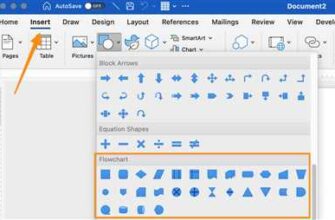
When it comes to finding a job as a software engineer, having a strong portfolio is key. A portfolio showcases your experience and skills, giving potential employers a glimpse into what you can bring to the table. Whether you are a beginner’s or an expert in the field, building a portfolio is a must.
But why do engineers need portfolios in the first place? Well, the answer is simple. Most employers and recruiters are looking for candidates who can demonstrate their expertise and experience. Without a solid portfolio, it can be difficult to convince them that you are the right person for the job.
Building a portfolio doesn’t have to be a daunting task. You can start small by taking on freelance projects or open-source gigs. These types of projects will not only give you the experience you need but also allow you to showcase your work to potential employers. Plus, they’ll provide you with valuable sources for references and recommendations.
One thing to keep in mind when building your portfolio is to focus on projects that align with the type of jobs you’re looking for. If you want to work in web development, for example, having a website of your own or contributing to open-source projects related to web development will be a great addition to your portfolio.
Having a portfolio is also a great way to increase your chances of getting freelance gigs. Many clients are willing to hire freelancers who have a portfolio that demonstrates their skills and experience. It gives them confidence in your abilities and shows them that you can deliver quality work.
The key to a successful portfolio is to showcase your best work. Choose projects that you are proud of and that demonstrate your expertise in the best possible way. If you are just starting out and don’t have many projects to showcase, don’t worry. You can always create your own projects or contribute to open-source projects to build up your portfolio.
Remember, having a portfolio is not only about showcasing your technical skills. It’s also about demonstrating your ability to work on different projects, problem-solving skills, and your mindset as a software engineer. Employers are not just looking for coding experts, they’re looking for someone who can think outside the box and tackle challenges with creativity and innovation.
So, if you’re stuck on what projects to include in your portfolio, think about what you enjoy doing the most and what you’re passionate about. That’s the type of projects you should focus on. Keep in mind that your portfolio is a living document and should be updated regularly. As you gain more experience and work on new projects, make sure to add them to your portfolio to keep it fresh and relevant.
Building a portfolio is not just about having a collection of projects. It’s about building relationships and working with people from different backgrounds and industries. So, don’t be afraid to reach out to others and collaborate on projects. This will not only help you expand your network but also give you the opportunity to learn from others and grow as a software engineer.
Having a portfolio is a powerful way to demonstrate your skills and experience to potential employers. It shows them that you are serious about your career and willing to put in the extra effort to stand out from the competition. So, don’t underestimate the power of a well-built portfolio. Start building yours today and unlock new opportunities in the world of software engineering!
How to Build Your Portfolio: A Beginner’s Guide

When it comes to starting a career as a freelance software engineer without any prior experience or projects, the right mindset is crucial. To build a strong portfolio, you need to keep in mind that you’re not just a beginner. You’re an expert in the making, and the best way to demonstrate your skills is through a portfolio.
So, how can you build a portfolio from scratch? Here’s a step-by-step approach:
1. Know what employers are looking for
Before you start working on your portfolio, it’s important to understand what types of projects recruiters and hiring managers are likely to find most appealing. Research job descriptions, talk to people in the industry, and find out what skills and experiences are in high demand. This will give you a clear direction on the types of projects you should focus on.
2. Start with small projects
As a beginner, it’s best to start with small projects that are manageable and help you build confidence. You can find freelance gigs on platforms like Upwork, Freelancer, or Fiverr. These projects may not pay much, but they’ll give you valuable experience and help you build your portfolio.
3. Pitch personal projects
If you’ve never worked on a software engineering project before, consider creating your own personal projects to showcase your skills. Think of a problem you can solve with coding and build a website, app, or any other software. Not only will this give you hands-on experience, but it will also demonstrate your creativity and passion for coding.
4. Build a great website
A portfolio is an online representation of your work, so invest time in building a great website. It should be visually appealing, easy to navigate, and showcase your projects in a clear and organized manner. Include descriptions of each project, the technologies you used, and any challenges you faced.
5. Show off your expertise through social media
Increase your visibility by sharing your projects and insights on social media platforms like LinkedIn, Twitter, and GitHub. Engage with other engineers, join relevant communities, and contribute to discussions. Recruiters often find candidates through these channels, so make sure you have a strong online presence.
6. Keep learning and updating
Software engineering is a dynamic field, so it’s important to keep learning and improving your skills. Stay up-to-date with the latest technologies, frameworks, and trends. Update your portfolio regularly to showcase your most recent projects and demonstrate your continuous growth as an engineer.
By following these steps and having a solid portfolio, you’ll be well-prepared to land freelance gigs, internships, or even full-time jobs in the software engineering industry. Remember, it’s not about how much experience you have, but rather how you can demonstrate your skills and passion through your work!
Why do you need a strong software engineer portfolio for software engineering jobs
When it comes to landing a job in software engineering, having a strong portfolio is crucial. It is not enough to simply have a degree or certifications in computer science or coding. Employers are looking for candidates who can demonstrate their skills and experience through real-world projects.
A strong software engineer portfolio is the right approach to showcase your expertise and capabilities. It allows you to pitch yourself to potential employers and show them what you are capable of without relying solely on job interviews. By having a portfolio, you give employers a chance to see your work firsthand and get an idea of your skills and abilities.
In today’s competitive job market, having a strong portfolio can set you apart from other candidates. It shows potential employers that you are serious about your career and willing to put in the effort to showcase your abilities. It also demonstrates your commitment to continuous learning and improvement.
Without a strong portfolio, you may be stuck in a never-ending cycle of looking for software engineering jobs. Many employers are hesitant to hire candidates without any demonstrated experience in the field. Building a portfolio allows you to increase your chances of getting hired, especially if you are a beginner in the industry.
There are different types of portfolios that software engineers can create. Some may choose to include personal projects they have worked on, while others may showcase small freelance gigs they have completed. The key is to find what works best for you and your experience level.
Building a software engineer portfolio is like building a small business. You need to approach it with the right mindset and plan. Start by working on a few projects that interest you and showcase your skills. As you gain more experience, you can expand your portfolio and take on more challenging projects.
One of the most important pros of having a strong portfolio is that it gives you the opportunity to network with other professionals in the industry. By showcasing your work online or through industry events, you can connect with experts and recruiters who may be looking for candidates like you. This can lead to valuable relationships and potentially open doors for future job opportunities.
Remember that a strong software engineer portfolio is not just about demonstrating your coding skills. It is also about showing employers that you have the ability to work on real-world projects and deliver results. Highlight your problem-solving skills, communication skills, and ability to work as part of a team.
In conclusion, a strong software engineer portfolio is essential for anyone looking for software engineering jobs. It helps you stand out from the thousands of other candidates and gives potential employers a glimpse into your skills and experience. So, if you’re serious about your career as a software engineer, start building your portfolio today!
What Recruiters Are Looking For
When it comes to finding the right candidates for their open positions, recruiters and hiring managers have certain things in mind. In particular, when it comes to engineering roles, there are a few key factors that recruiters are looking for in a candidate’s portfolio.
First and foremost, recruiters are looking for solid proof of your skills and experience. They want to see that you have worked on real projects and have a strong understanding of the software engineering field. This can be demonstrated through the projects you showcase on your portfolio website or through the code snippets you provide.
Recruiters are also looking for candidates who are willing to learn and grow. They want to see that you are open to new challenges and are constantly seeking to increase your knowledge and expertise. This can be shown through your involvement in side projects, personal coding projects, or even freelance gigs that you have taken on.
In addition to technical skills, recruiters are also looking for candidates who have strong communication and interpersonal skills. They want to know that you can work well with others and can effectively convey your ideas and thoughts. This can be demonstrated through any team-oriented projects you have worked on or through your involvement in professional organizations or online communities.
Another important aspect that recruiters focus on is whether or not you can complete projects from start to finish. They want to see that you can take a project from its inception to its completion, without getting stuck or giving up along the way. This can be shown through the types of projects you have worked on and the level of complexity you have tackled.
Lastly, recruiters are looking for candidates who have a professional and polished online presence. This includes having a well-designed and easy-to-navigate portfolio website, as well as a strong social media presence. They want to see that you have put effort into building your personal brand and that you are actively engaging with others in the software engineering community.
Overall, building a strong portfolio is essential for attracting the attention of recruiters and employers. By showcasing your skills, experience, and personal projects, you are giving them a glimpse into what you can bring to the table. So, make sure to keep these factors in mind while building your portfolio, and you’ll be on your way to landing your dream job!
How to build a portfolio from scratch with little experience
When it comes to building a portfolio with little experience, there are several steps you can take to showcase your skills and stand out from other candidates. Here are some tips to help you get started:
- Focus on personal projects: If you’re looking to build a portfolio as a software engineer, for example, start by taking on small projects that you can work on in your free time. These projects can be anything from creating a simple website to developing a small software application.
- Be willing to work for free: While it may not be ideal, offering your services for free can be a great way to gain experience and build a portfolio. Reach out to small businesses or freelance gigs and offer to work on a project for them. This will not only give you the opportunity to gain hands-on experience, but it will also help you build relationships and potentially lead to paid work in the future.
- Pitched yourself to recruiters: Even if you don’t have a solid portfolio yet, don’t be afraid to reach out to recruiters and let them know that you’re a beginner’s engineer looking for projects to work on. Many recruiters and hiring managers are willing to give new candidates a chance if they see potential and enthusiasm.
- Find open-source projects: Open-source projects are a great way to get involved in the engineering community and demonstrate your skills. Contributing to these projects not only allows you to gain experience, but it also shows potential employers that you’re willing to work collaboratively and have a strong understanding of software development.
- Start your own projects: If you’re feeling stuck or unable to find opportunities to work on projects, consider starting your own. This could be as simple as creating a website or developing a mobile app. Having a portfolio of personal projects shows employers that you’re proactive and have a strong mindset for working independently.
Remember, when it comes to building a portfolio from scratch with little experience, it’s all about demonstrating your skills and willingness to learn. Be proactive, take on projects, and don’t be afraid to showcase your work to potential employers. With the right approach, you can build a strong portfolio that will catch the attention of recruiters and hiring managers.
Sources
When it comes to building your portfolio as an engineer, there are several sources you can turn to:
- Personal Projects: Building your own projects, such as coding a software or creating a website, can give you valuable experience and showcase your skills.
- Freelancing Gigs: Taking on freelance projects can help you build a solid portfolio and demonstrate your ability to work with clients and meet their specific needs.
- Volunteer Work: Offering your skills for free to non-profit organizations or small businesses can help you gain real-world experience and show potential employers or clients that you are willing to contribute to projects without monetary compensation.
- Contributing to Open Source Projects: Getting involved in open-source projects allows you to collaborate with other engineers, increase your visibility in the engineering community, and demonstrate your expertise in a particular area.
- Internships: If you’re a beginner or a recent graduate, internships can provide you with valuable hands-on experience and help you build your portfolio while working under the guidance of experienced professionals.
- Side Projects: In addition to your main projects, working on side projects can help you explore new technologies and showcase your versatility as an engineer.
By having a diverse range of projects in your portfolio, you show potential employers or clients that you are a well-rounded and experienced engineer. It’s important to keep your portfolio up-to-date and organized so that people can easily find the projects and information they’re looking for. Having a strong online presence, including a personal website, social media profiles, and a professional LinkedIn profile, can also increase your visibility and attract recruiters or hiring managers.










